The Construction of Rule of Law in Huhhot Develops Vigorously, The Youth Shoulder the Mission — — Peking University Law School Carries out Ideological and Political Practice Course in Inner Mongolia Autonomous Region
Date:2024-05-22
The year 2023 is the first year to fully implement the spirit of the 20th National Congress of the Communist Party of China, is a key year to carry out the 14th Five-year Plan, and is also an important year to build a modern socialist country in an all-round way. In order to carry out in-depth study and implementation of Xi Jinping Thought on Socialism with Chinese Characteristics for a New Era, firmly grasp the general requirements of "studying ideology, strengthening Party spirit, emphasizing practice and making new contributions" in the theme education of Xi Jinping Thought on Socialism with Chinese Characteristics for a New Era, and implement the theme of 2023 Ideological and Political Practice Course of Peking University "Hold the Banner High and Follow the Party, Make Vigorous Efforts to the Future", Peking University Law School organized nine teams for the course, more than 210 teachers and students to go to 28 cities and counties in nine provinces to carry out practical activities. The Dean, Party Secretary and Other Members of the Party and the Government Offices of Law School led the teams to the front line of practice. Professional teachers, head teachers and counselors served as the teaching teachers, and ideological and political counselors with Doctorates and senior student cadres as the teaching assistants, pooling the tremendous power of ideological and political practice and guiding the young members of the legal profession to "embrace their dreams and be down-to-earth, dare to think and act and be good at doing well and succeed", and strive to grow into the vanguard in the new journey of building a modern and powerful socialist country in an all-round way.
In order to deeply implement the theme education of Xi Jinping Thought on Socialism with Chinese Characteristics for a New Era, guide students to organically combine law theory with practice of the rule of law, and better draw wisdom from the vivid practice of social governance, from July 9 to 13, Peking University Law School teachers and students went to Hohhot, Inner Mongolia Autonomous Region to carry out the Ideological and Political Practice Course on the theme of "The Construction of Rule of Law in Huhhot Develops Vigorously, The Youth Shoulder the Mission". The team was led by Shi Ji, Assistant Dean of the Law School, Xu Jia, Deputy Secretary of Youth League Committee, with Shi Xiaowei, Ph. D., Class 2022, Tu Wanting, Master's Degree, Class 2022, Xing Weiting, Undergraduate, Class 2021 of Peking University Law School and Zhao Chuncheng, Ph. D., Class 2022 of School of Marxism, Peking University, as the teaching assistant. 19 undergraduates participated.
Study at the round table and discuss the law, Peers meet friends through books
To promote the interconnection and cooperation between fraternal institutions and deepen the camaraderie between the faculties of Inner Mongolia University Law School and Peking University, on the morning of July 10, all members of the Ideological and Political Practice Group visited Inner Mongolia University Law School and held a round-table meeting for faculty-student exchange. Inner Mongolia University Law School Party Secretary Long Changhai, Dean Ding Peng, Deputy Party Secretary Duan Jizhen, Deputy Dean Ma Bo, Deputy Dean Ta Na of the Supervisory Officer Training College, Secretary of Youth League Committee and Lecturer Guo Yu, Peking University Law School 2023 alumnus Wang Sarina, Counselor Wu Han, Inner Mongolia University Law School student representatives and all the teachers and students of Peking University Law School Ideological and Political Practice Group attended the meeting.
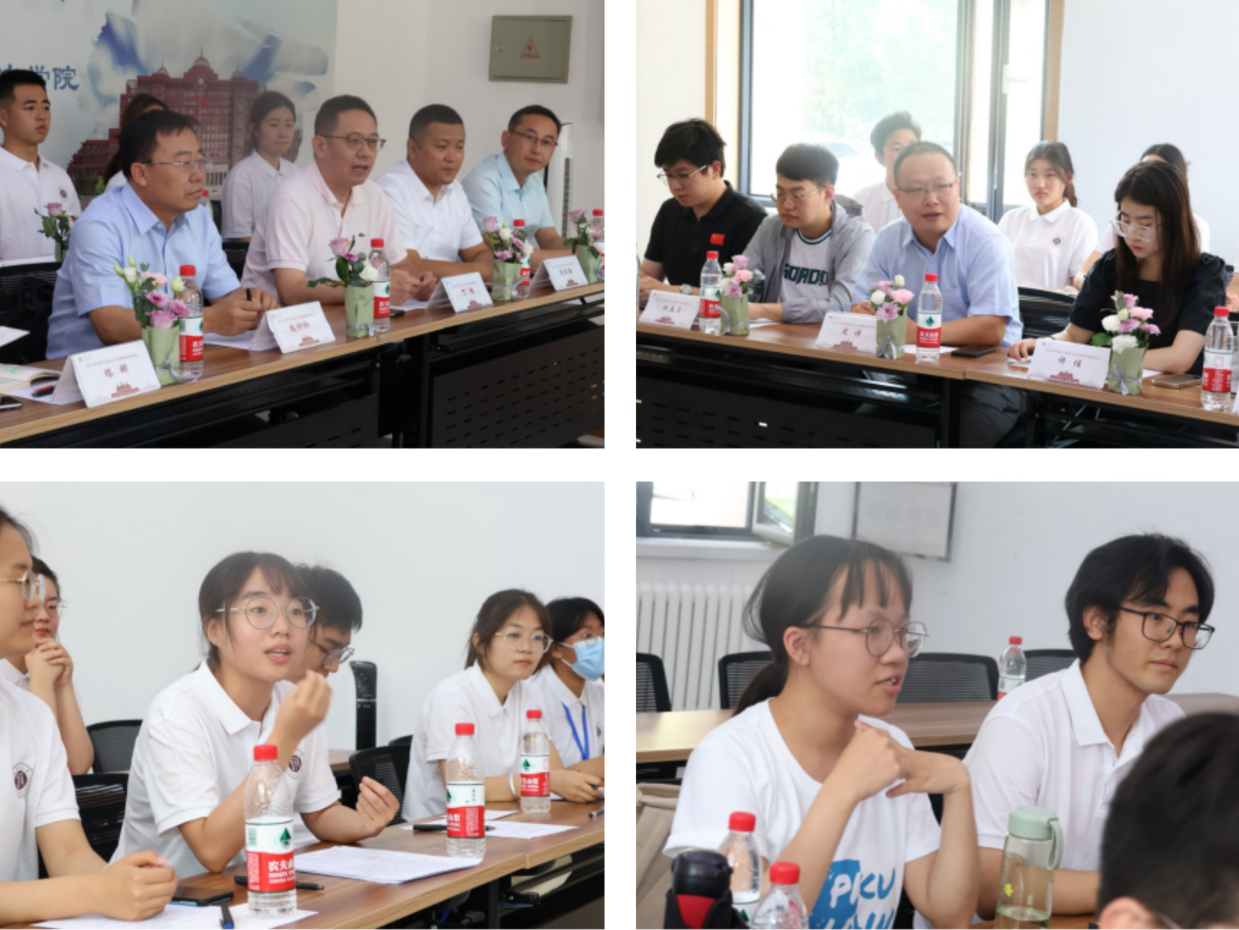
The teachers and students of the two universities first watched the promotional video of Inner Mongolia University and the welcome video recorded by the Faculty of Inner Mongolia University Law School. Under the introduction of the leaders and teachers of Inner Mongolia University Law School, the members of the practice group gained an in-depth understanding of the philosophy and characteristics of Inner Mongolia University, realized the spirit of Inner Mongolia University's tireless struggle to empower dreams, and deeply felt the enthusiasm of Inner Mongolia University's teachers and students. In the round-table meeting with "Communication and Learning" as the core, the students of the two universities shared their personal experiences of study and life on the curriculum practice and training model characteristics, and had in-depth exchanges on discipline inspection, intellectual property rights, and other characteristic majors and future career plans. They "Making Friends by Books", shared quotations from classic law books and reading impressions in a relaxed atmosphere, and experienced the historical charm and value of law monographs.
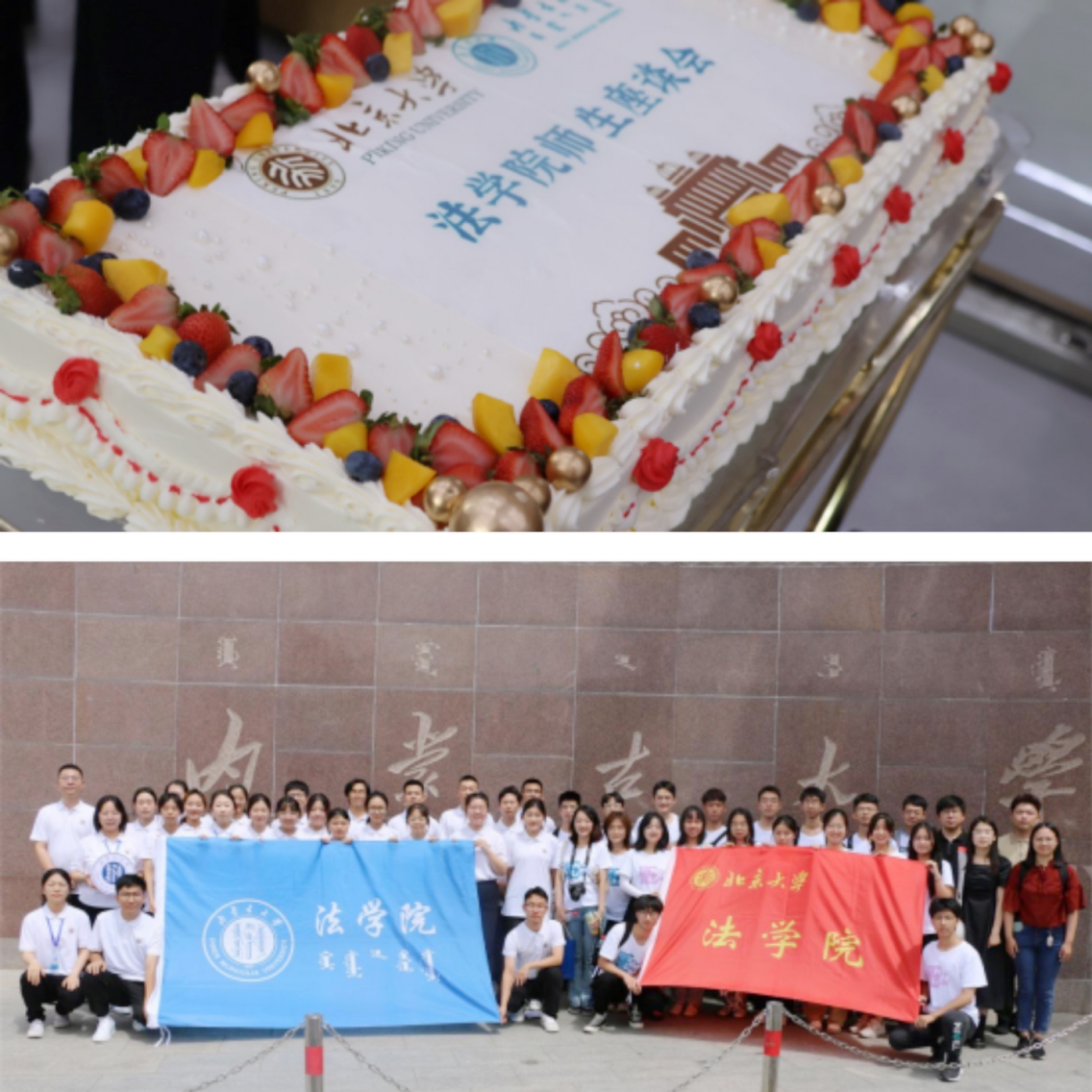
Understanding the Rule of Law in the Forefront, Assuming the Responsibility of the Times
General Secretary Xi Jinping once walked into the sixth phase of Mengniu headquarters to inspect the plant. At that time, General Secretary Xi Jinping saw Mengniu's corporate motto, "Food is the people's priority, milk is the food first", continued "Milk Safety is the Most Important Thing", expressing the high expectations of the Party and state leaders for the dairy workers. On the afternoon of July 10th, with the help of Peking University Alumni Association, the delegation visited Mengniu Group HQ and talked with the staff of the Legal Department of Mengniu about the possible legal issues involved in the process. Guo Lianheng, Secretary-general of Inner Mongolia Autonomous Region Peking University Alumni Association and alumnus of Grade 81, Peking University Law School, attended the whole visit. At the forum, the students gained a detailed understanding of Mengniu's system structure of escorting high-quality development through several vivid cases. After listening to the experience of the Legal Department of Mengniu on contract review, intellectual property rights protection, corporate compliance, etc., they brainstormed and asked questions enthusiastically, and gained many valuable new knowledge that can not be understood intuitively in the theoretical classroom.
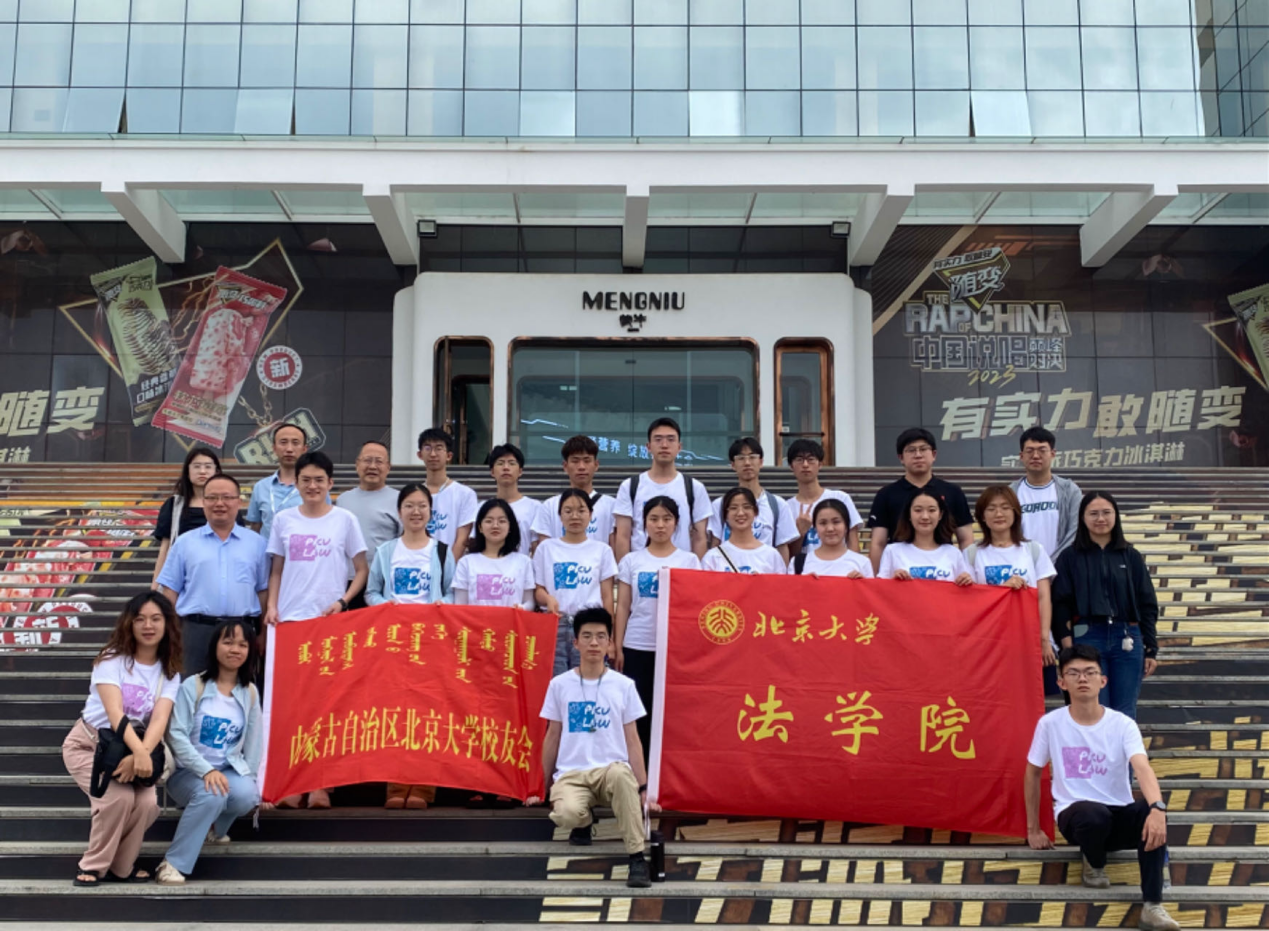
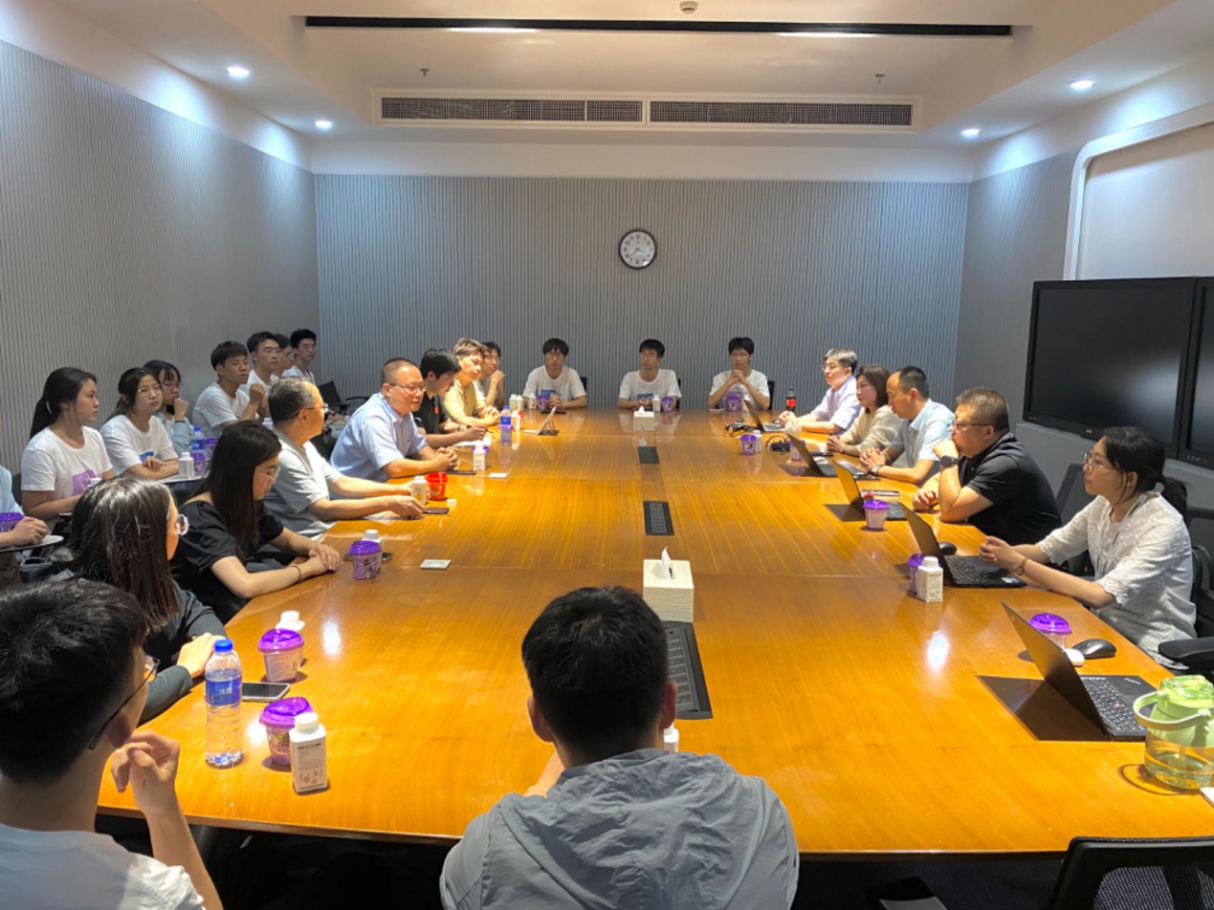
On the morning of July 11th, in order to understand the unique concept and achievements of the rule of law in Inner Mongolia, the practice group visited the Higher People's Court of Inner Mongolia Autonomous Region. The fully-functional litigation service center provides the people with a more accurate one-stop service to carry out law and regulation inquiry, online case filing consultation, litigation risk assessment, etc. Teachers, students and the party have a deeper understanding of the implementation of the concepts of "justice for the people" and "justice for the convenience of the people" in practice. The teachers and students attended the live trial of the right to use construction land, facing the operation of the laws and regulations, so that the students can learn more fresh from the book in practice. Later, Liu Yingmin, Full-time Deputy Party Secretary of the Higher People's Court of Inner Mongolia Autonomous Region, Tian Gang, Dean of Inner Mongolia Institute of Continuing Education for the Judges Kong Yaowen, Deputy Party Secretary of the Organ and Secretary of the Commission for Discipline Inspection of Inner Mongolia Institute of Continuing Education for the Judges, and other leaders and judges had a discussion with the teachers and students of the practice group. The young legal practitioners shared their own experiences to make the students think more deeply about the professional problems of pre-trial mediation, online dispute settlement mechanism, criminal witness appearance in court, and the opening of second instance trials, and also to make the students have a new understanding of the characteristics of the rule of law in Inner Mongolia Autonomous Region, such as the provision of Chinese and Mongolian bilingual trials. Their explanation of the selection requirements of judge assistants, the specific standards of judge assistants, and the way of assessment in practice brought valuable reference for the students' future career planning.
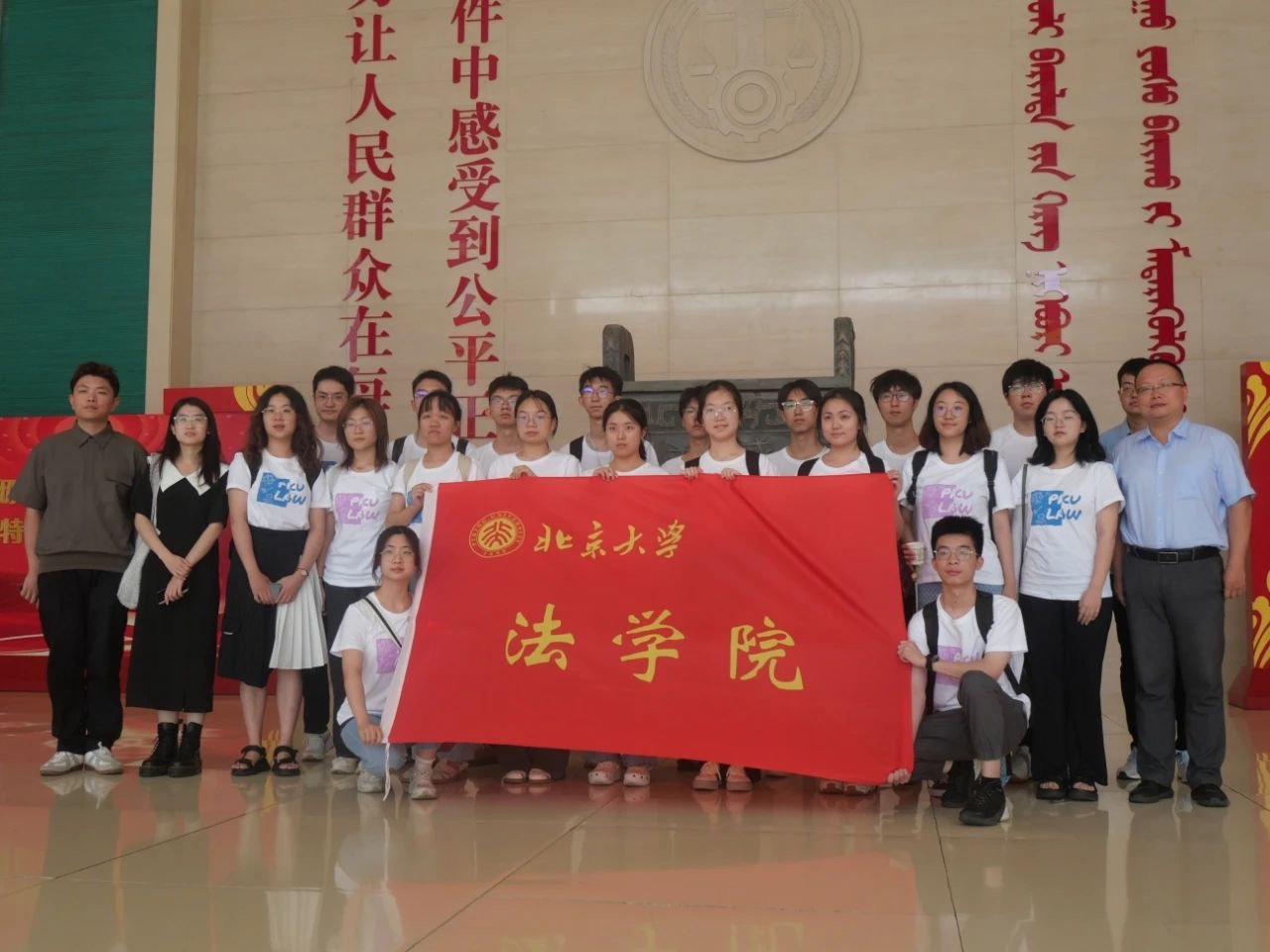
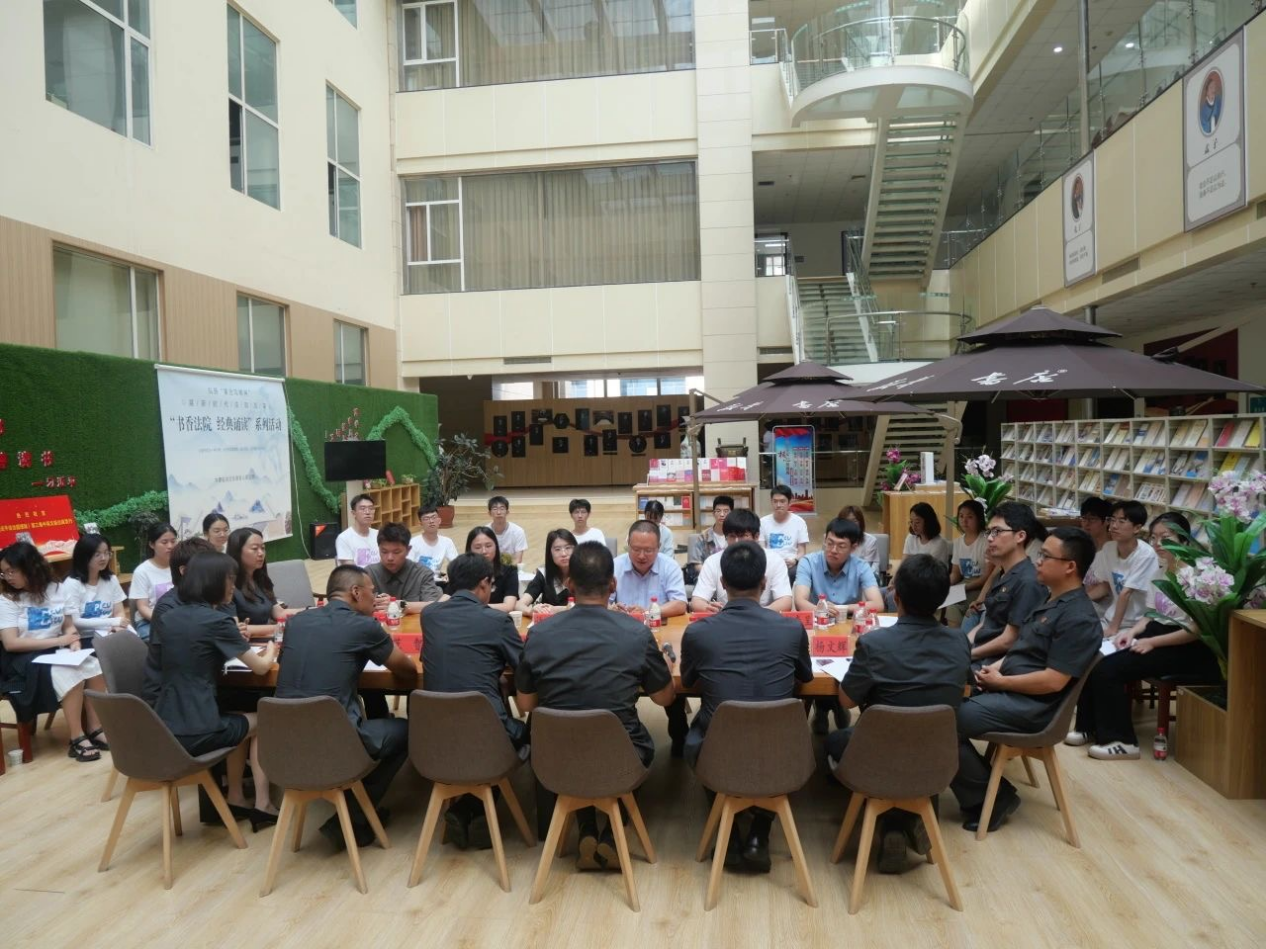
On the afternoon of July 11th, the teachers and students of the Mission walked into the People’s Procuratorate of Hohhot. Follow the commentator's footsteps. In Hohhot Procuratorial Big Data Center, the teachers and students deeply feel the convenience and progress brought by modern science and technology to the procuratorial work. In the New Era Procuratorial Practice Education Base, the teachers and students understand the development of the Procuratorial Department and the basic situation of Party building of the People’s Procuratorate of Hohhot. In 12309 Procuratorial Service Center, the teachers and students feel the strong human touch in legal practice. Zhuolan Prosecution Centre for Minors, which undertakes the responsibilities of self-protection education, prevention of juvenile delinquency and comprehensive judicial protection, demonstrates its intentions and carefulness everywhere. The teachers and students have a deep understanding of the protection of minors in the procuratorial work. After visiting the various areas of the procuratorate, we have already benefited a lot. With the full of harvest and confusion in mind, the students and the prosecutors carried out an exchange forum, asking questions of the prosecutors on their own learning experience and interests. The questions involved the protection of minor victims, cross cases between criminal and civil cases, public interest litigation, supplementary investigation, etc. The prosecutors also said everything they knew, providing the students with a vivid and valuable enlightenment classroom on the law of litigation.
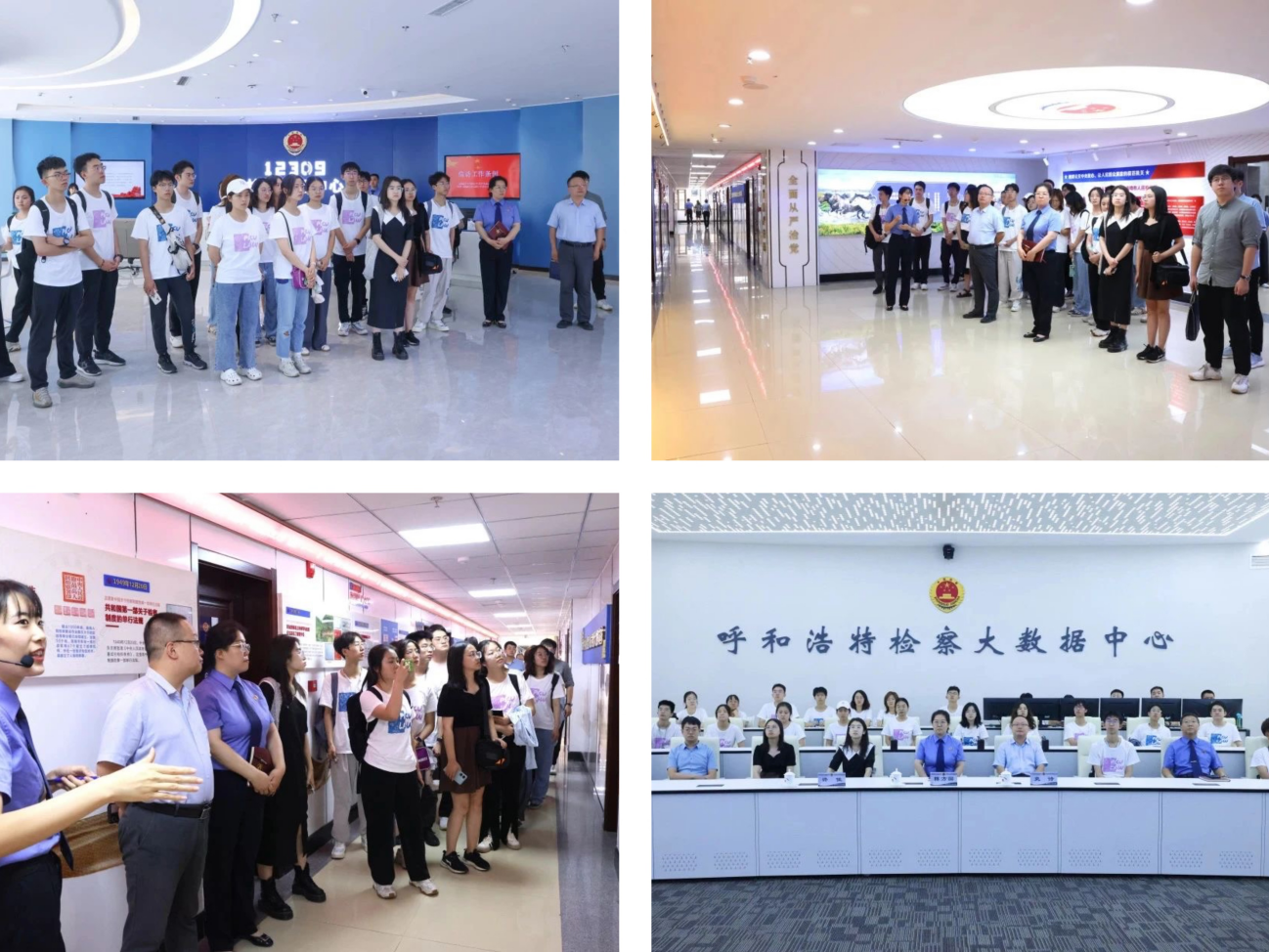
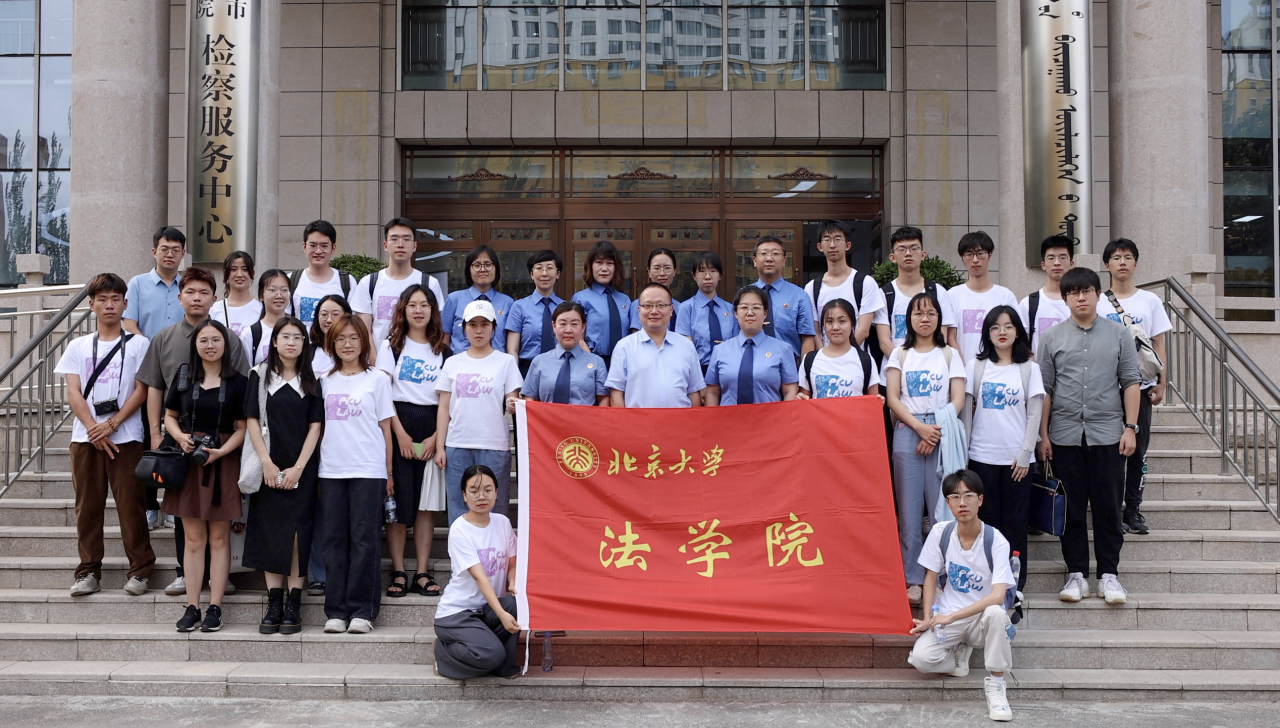
On the morning of July 12th, the Practice group went to Beijing Yingke(Hohhot) Law Firm to visit and investigate the development of ethnic unity and legal aid work.
Sincerity embraces tightly like pomegranate seeds, and ethnic flowers blooms beautifully
On the afternoon of July 12th, the Practice group arrived at Inner Mongolia Museum to visit and study. Entering the museum, what greeted us was the inscription of General Secretary Xi Jinping in the hall - "Building a Bright Inner Mongolia, Fulfilling the Great Chinese dream", which points out the main key of the museum. The four thematic exhibition halls "Bright Inner Mongolia", "Flying Shenzhou", "Road to Liberation" and "Convergence", fuse modern elements, ethnic characteristics and regional characteristics, leading the students to experience the abundant vitality and boundless vitality of Inner Mongolia. Chinese culture is diverse, and the Chinese nation is like a family. The vast land of Inner Mongolia Autonomous Region is pregnant with a colorful national culture and a powerful force of national unity. Being there personally, we forge a strong sense of the Chinese nation as a community in the bottom of our hearts.
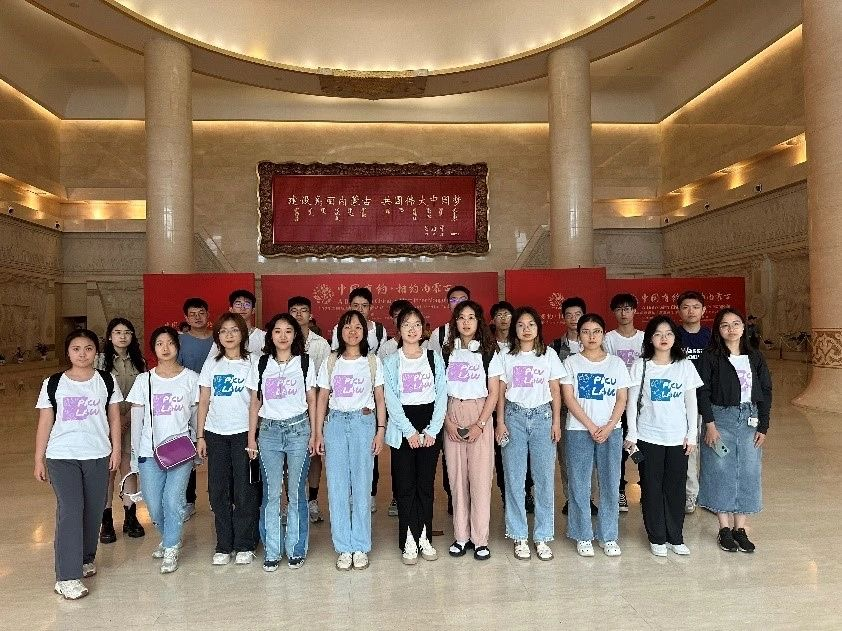
The trip to Inner Mongolia can be described as fruitful, with which the members of the Practice group experienced the interest of friendship in the round-table discussion of law and making friends by books, broadened their horizons in the forefront of the rule of law such as the judicial organs, the procuratorial organs, the corporate law firms, and a strong sense of the Chinese nation as a community in the context of multiculturalism and national integration. As young people of the new era, I believe that the students will transform these fruitful and substantial memories of the activity into firm will and conscious action in the future, and contribute to the strength of Peking University young members of the legal profession to Chinese path to modernization and the construction of rule of law for the society.
Some students' thoughts:
Xu Xinyu, Undergraduate of Law School, Class 2022:
On the morning of July 11th, I visited the Higher People's Court of Inner Mongolia Autonomous Region with the practice group. After understanding the case filing hall, we attended a court hearing. Reading the material and watching the lawyers and the judges perform their respective duties, as if the usual legal provisions and classic cases are in front of our eyes. As a freshman of law who has just finished his freshman year, although he has not yet studied procedural law, I have gained a lot of knowledge of procedure and form after experiencing a complete trial. After the trial, in the discussion with the judges, I benefited a lot from the students' rich questions and the judges' refined answers. This discussion reinforced my belief that the judiciary upholds fair justice and will always find a way to apply the law in light of the local conditions. That afternoon, we visited the People’s Procuratorate of Hohhot, walking through the data hall, Zhuolan Prosecution Centre for Minors, the service center, the practice base in turn. I was amazed by the comprehensive and detailed functional planning of the Procuratorate. In the informal discussion, I got the first close-up look at what prosecutors do and how they solve problems in the work. This not only makes the prosecutorial work more intimate, but also provides a new perspective for my career plan and professional thinking. The trip of July 11th was full of meaning. Through the judicial and prosecutorial windows, I seemed to be able to touch more of the essence of the law; this experience was precious and meaningful.
Guo Chaoran, Undergraduate of Law School, Class 2022:
Although I have been in law school for a year, my understanding of the law is still shallow and immature. After walking into the court and the procuratorate today and truly understanding the political and legal work, I seem to have come into contact with the shadow of "a member of the legal profession". During my visits to the court and my exchanges with the judges and prosecutors, I have come to realize the importance of the unity of knowledge and practice. Law should not be just an ivory tower talk, nor should it stop at theoretical research, but should be firmly rooted in practice and serve the people and the society. In order to do judicial work well, application of the law, social experience and humanistic care are often indispensable. In addition, the development of intelligent information technology in the judicial system has been an eye-opener for me. 3D Modeling, Intelligent-Scoring machines for lawyers, Intelligent Filing Cabinets... ever-changing information technology has given great energy and convenience to the work of the rule of law. Through my visit to the two judicial organs, I have a taste of the ability and style of the judiciary, and have more awareness and imagination for my future. I also have a clearer understanding of the difficult and long road ahead of me.
Tang Yuyan, Undergraduate of Law School, Class 2021:
We went to the Higher People's Court of Inner Mongolia Autonomous Region to watch the trial and participate in the discussion. I learned a lot from the judges' detailed answers. The judges' sharing complemented the paleness of our theoretical knowledge. What impressed me most was the specific practice of whether the second instance of criminal cases should be held. In addition to those expressly stipulated in the law, the court will also consider the contradictions of the parties, etc., and decide whether to hold a hearing outside of legal causes. These have greatly enriched our understanding of the actual operation of law. The trip of the procuratorate further made me realize the humanistic care of judicial system. The procuratorate attaches great importance to restorative justice and the fairness demands of all parties, and pursues not only the correct legal theory, but also the "conclusion of the case and resolution of the dispute". This inspires us that the law is not a cold machine, and that using the law to promote social harmony should be a higher pursuit of every legal person in addition to knowledge.
Liu Shutong, Undergraduate of Law School, Class 2021:
On the last day of the practice group, we went to the Inner Mongolia Museum. In the museum, our footprints range from ancient times to the pre-Qin Dynasty, across the Tang and Song Dynasties, through the Ming and Qing Dynasties, and into the future. What moved me deeply was the passage of time through the ages. It showed me the insignificance of each individual in the long river of history, and the unremitting pursuit of independence and the present. It also showed me the important role of the individual, just like the capable people and heroes in the modern revolution, who created the greatness of the individual and the grandeur of the history in their own insignificance. It made me sigh with emotion that we should be like this. Similarly, I also from the visit, witnessed the magnificence of the Chinese nation, the close connection between ethnic cultures, the eternal friendship between the 56 ethnic groups. In short, through this museum visit, I deeply felt the powerful cohesion of the Chinese nation, but also realized the attitude and firmness that individuals should hold in the long river of history. These sentiments will become my motivation and life choice in the future of my study and life.
Han Yiming, Undergraduate, Law School, Class 2022:
Today we visited the Inner Mongolia Museum, this study gave me a great shock. Seen vertically, the various halls of the museum exhibit the development and changes of Inner Mongolia since the Stone Age, from simple and crude stone tools to sophisticated firearms, from heavy carriages to exquisite horse harnesses. The wisdom of generations of predecessors has undergone the scouring of the long river of time, setting off vicissitudes and development on this grassland. Horizontally, the exhibition hall introduces the national blend and convergence in Inner Mongolia in different stages of history, vividly echoing General Secretary Xi Jinping's classic discourse of "forging a strong sense of the Chinese nation as a community and promoting exchanges and blends among ethnic groups". Rooted in the grassland, Mongol nationality has developed and progressed together in its exchanges with Han nationality, Oroqen, Ewenki, Daur and other ethnic groups. Through this visit to the Inner Mongolia Museum, I not only feel the mystery of the wisdom of the ancients, but also feel proud of our ethnic relations and ethnic cultures!



